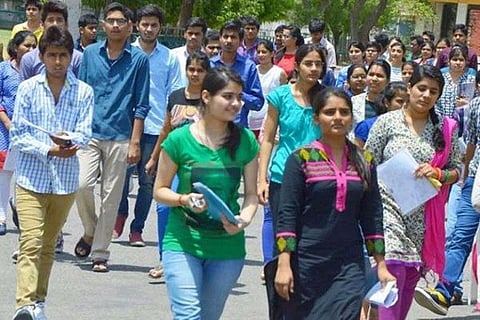

The findings of a study conducted by Kuviraa, a feminist nonprofit in India, in collaboration with researchers from the University of California, Los Angeles (UCLA), have identified a growing disparity in the political interest, engagement, and aspirations between Indian girls and boys between the age group of 14 and 22 years. According to the study, adolescent boys are more politically engaged than girls. The study has also identified a “troubling” trend among boys and young men as their level of awareness regarding the root causes of gender disparities in Indian politics was largely lower compared to girls.
The study observed that boys consider themselves interested in political affairs and they are more politically involved than girls. Meanwhile, a higher percentage of girls believed there were no opportunities for them to be involved in politics. Shevika M, founder of Kuviraa, told TNM, “Largely, the reasons around girls thinking that they didn’t have opportunities in politics stemmed from commitments to their families. Many of them also came from the place of believing that inherent sexism in the society will deter their progression if they wished to pursue politics as a career.” The study also found that younger boys and girls between 14 and 17 years had relatively lower political engagement. While the engagement rises for boys as they grow older, the graph remains stagnant for girls, the study noted.
The study also highlights what it calls a dangerous trend of boys being unaware of the root causes of gender disparities in the Indian political scenario. “Whether it's a man or a woman, the difficulty level is the same for them,” a 16-year-old boy’s response read. Another 18-year-old’s response read, “Women don’t take the initiative to stand as a candidate.” Improving boys’ awareness regarding structural sexism was key to identifying problems rooted in misogynistic beliefs and would help them understand their privilege in the social structure, the study suggested.
The study found that parents' involvement in encouraging teens to discuss politics played a vital role in improving teens' engagement. “An interesting learning from the interviews that we conducted with parents was that they wished to shield their children from politics because of how the media covers politics in the country. The media coverage has largely been polarised and parents that I interviewed emphasised on their decision to shield kids and talk about things from a social justice point of view,” Shevika noted.
She added that a large number of young girls complained of not being encouraged to actively participate in political discussions. “It is unfortunate that these minors, especially female youth, are not extended enough information about politics up until the age of 17 and are then expected to vote. It makes a huge difference,” she added.
The 600-plus participants of the study largely hailed from the metro cities of the country, including Mumbai, Bengaluru and New Delhi. The study had invited respondents from diverse genders. However, due to a lesser number of responses from gender-diverse youth, the researchers were forced to compare girls and boys.